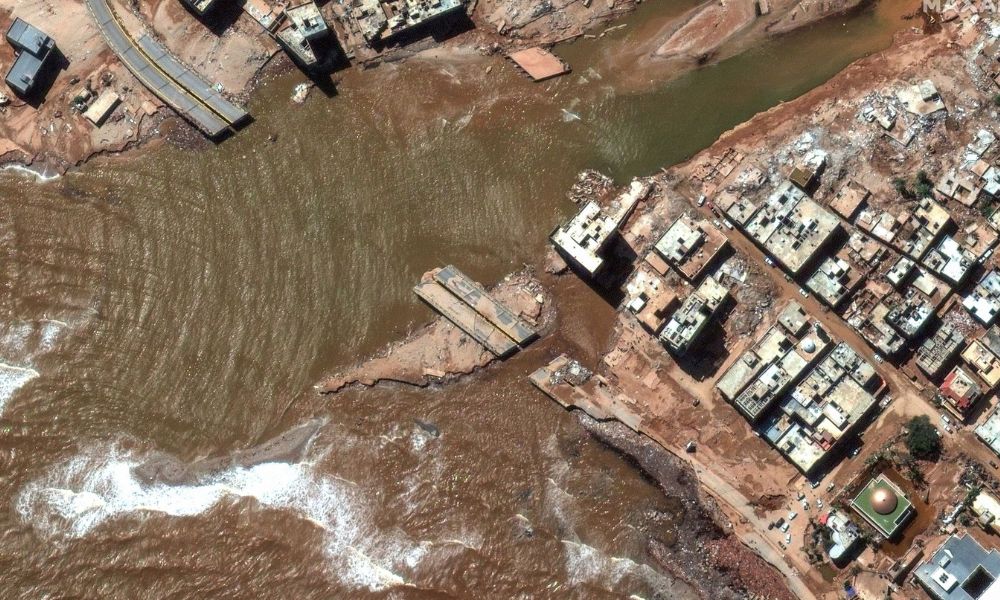
The Libya floods of September 2023 were a devastating event that had a profound impact on the country. The floods killed over 5,000 people, displaced tens of thousands more, and caused billions of dollars in damage to infrastructure. The floods also had a significant impact on the Libyan economy and environment.
In the wake of the floods, the international community has rallied to support the Libyan people. Governments, organizations, and individuals from all over the world have provided humanitarian assistance and support to help the Libyan people recover from this disaster.
This blog post will examine the international community's response to the Libya floods. We will discuss the challenges that the international community faces in providing assistance to Libya, and we will highlight some of the ways that the international community is helping the Libyan people recover from this disaster.
We will conclude by arguing that the international community has a responsibility to continue to support the Libyan people in the months and years to come. The floods have caused widespread devastation, and millions of people are in need of assistance. The international community must work together to provide the Libyan people with the support they need to rebuild their lives and livelihoods.
|
Are you a Tax Lawyer in USA? |
The international community is providing humanitarian assistance and support to the Libyan government in the wake of the devastating floods that hit the country in September 2023.
The United Nations has launched a $71 million appeal to help the hundreds of thousands of people affected by the floods. The UN is providing food, water, shelter, and medical care to those in need. The UN is also working to help the Libyan government rebuild infrastructure and restore essential services.
The European Union has also provided humanitarian assistance to Libya, including food, water, and medical supplies. The EU is also working to help the Libyan government rebuild infrastructure and restore essential services.
A number of individual countries have also provided humanitarian assistance to Libya, including the United States, the United Kingdom, France, Germany, and Italy. These countries have provided food, water, medical supplies, and financial assistance.
In addition to humanitarian assistance, the international community is also providing support to the Libyan government to help it improve its disaster preparedness and response capabilities. This includes providing training and technical assistance to Libyan government officials and agencies.
The international community's response to the Libya floods is a welcome step. However, more needs to be done to help the Libyan people recover from this disaster. The international community should continue to provide humanitarian assistance and support to the Libyan government in the months and years to come.
There are a number of challenges that the international community faces in providing assistance to Libya. One challenge is the country's political instability. Libya has two rival governments, and this has made it difficult for the international community to coordinate its response.
Another challenge is the lack of security in Libya. The country is plagued by violence and armed conflict, and this has made it difficult for humanitarian workers to reach those in need.
Finally, the international community is also facing financial constraints. The global humanitarian crisis is growing, and there are many competing demands for resources. This means that the international community may not be able to provide as much assistance to Libya as it would like.
The international community is providing humanitarian assistance and support to the Libyan government in the wake of the devastating floods that hit the country in September 2023. However, more needs to be done to help the Libyan people recover from this disaster. The international community should continue to provide humanitarian assistance and support to the Libyan government in the months and years to come.
Despite the challenges, the international community has a responsibility to help the Libyan people recover from this disaster. The floods have caused widespread devastation, and millions of people are in need of assistance. The international community must work together to provide the Libyan people with the support they need to rebuild their lives and livelihoods.